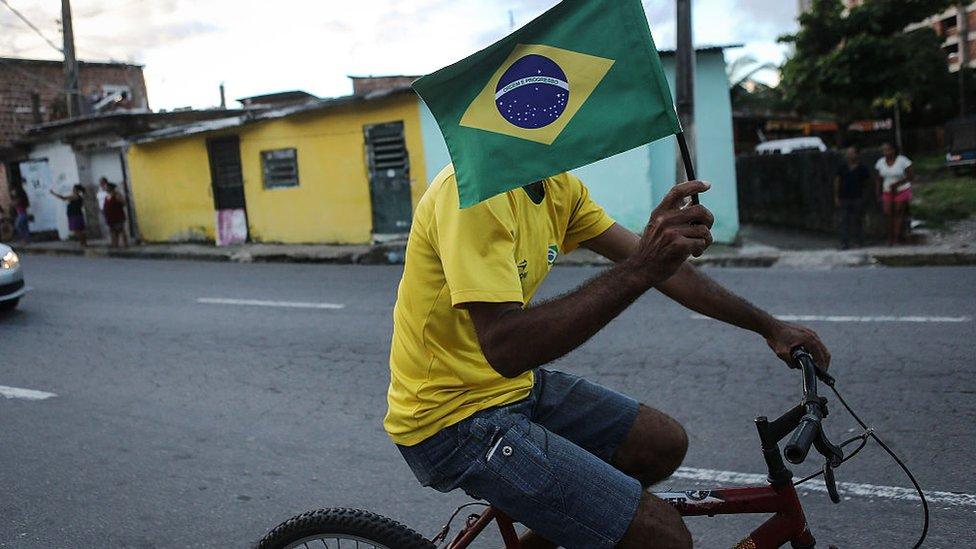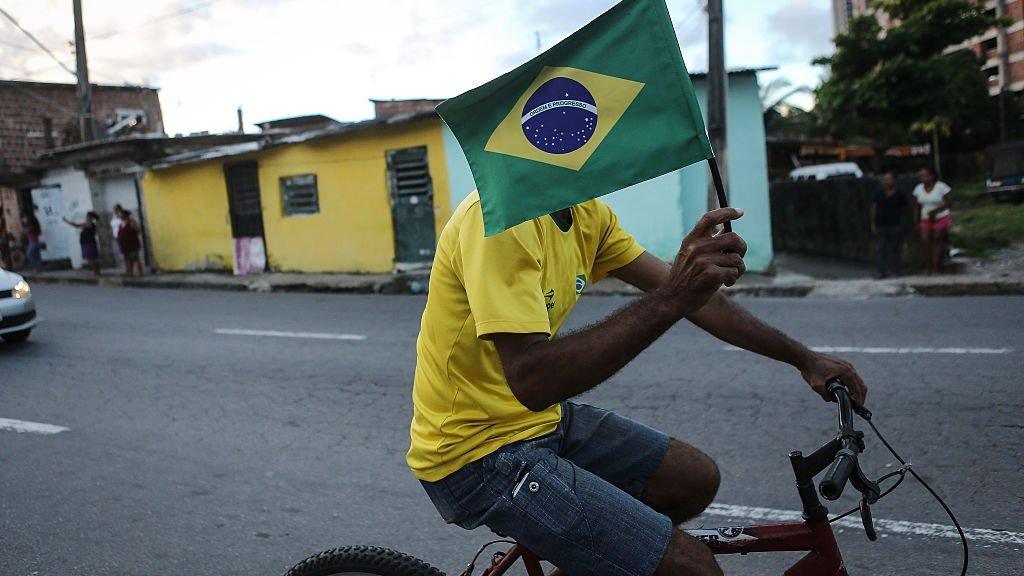Brazil launches rescue plan to fix economy
- Published

Brazil's new government has announced a privatisation plan aimed at reviving the country's struggling economy.
It plans to sell off four airports and two port terminals as well as offer contracts to private firms for a wide range of projects from building new roads to running mining projects.
President Michel Temer, sworn in two weeks ago after his predecessor Dilma Rousseff, was removed from office, said the plan would boost growth and jobs.
"The state cannot do it all," he added.
What has gone wrong in Brazil?
Brazil's economy continues to contract
The plans are part of the new president's "Crescer" ("Grow") initiative, which aims to increase private investment in the country, in an attempt to address its huge budget deficit amid the country's worst recession in 80 years.
Brazil's economy contracted 3.8% last year, and is expected to shrink a further 4.3% this year, according to the Organisation for Economic Co-operation and Development (OECD).
Mr Temer was vice-president, but took over as president at the end of August after Ms Rousseff was impeached and removed from office on charges of illegally manipulating the government's accounts.
He has pledged to make pension and labour reforms as well as make infrastructure investments more attractive to private firms and foreign investors.
The government will scrap a rule that state-run oil firm Petrobras has to have a 30% stake in all new oil reserve developments.
And auction rules will be printed in English as well as Portuguese in a bid to attract overseas investors.
- Published8 April 2018

- Published1 June 2016
